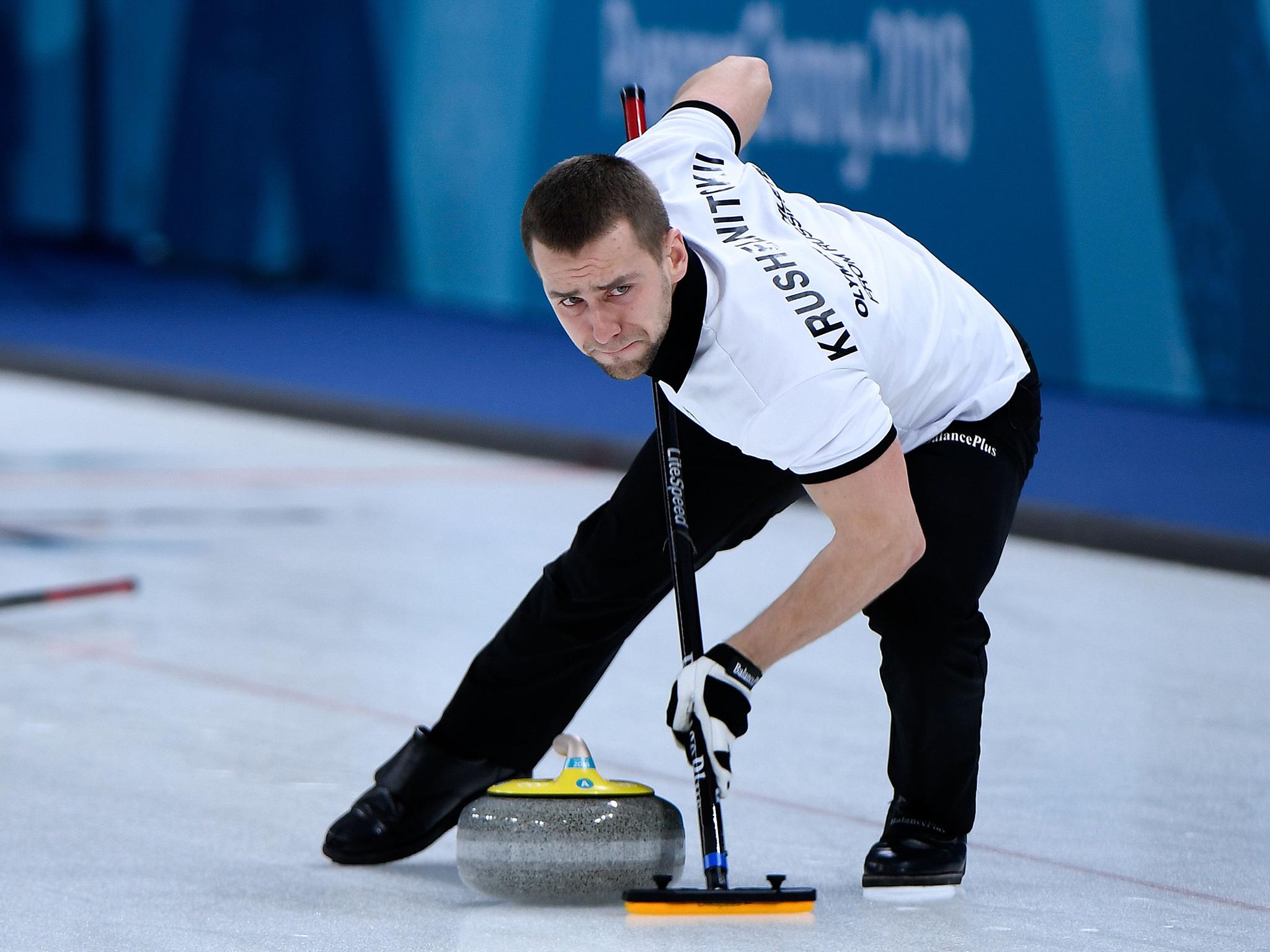Winter Olympics 2018: What is Meldonium and how can the banned drug enhance performance in curling?
Russian curler Alexander Krushelnitzky is alleged to have tested positive for Meldonium, having won Winter Olympic bronze in the mixed doubles in Pyeongchang

The reaction to Alexander Krushelnitsky’s suspected positive drugs test for Meldonium within the 2018 Winter Olympics community has been one of bemusement after many of the Russian’s curling opponents asked why would someone dope in a sport that requires low intensity and endurance levels.
The 25-year-old, who competed at Pyeonchang 2018 last week and claimed a bronze medal with his partner and wife, Anastasia Bryzgalova, in the mixed doubles, has allegedly returned a drugs sample that tested positive for the banned substance Meldonium.
It increases blood flow, improves exercise capacity and is favoured by endurance athletes, and is more commonly known in Russia as Mildronate, made by Latvian pharmaceutical firm Grindeks and used by Eastern Europeans to treat heart conditions such as angina, chronic heart failure, cardiomyopathy and other cardiovascular disorders.
It is the same drug that Maria Sharapova tested positive for in 2016, for which she received and served a 15-month ban from tennis.
But while failed drugs tests can course widespread anger among rival competitors, the reaction to the news that Krushelnitzky has allegedly tested positive for Meldonium has triggered a mixed response from current curling athletes.
”I think most people will laugh and ask, ‘what could you possibly need doping for?', as I am thinking,” Madeleine Dupont, skip for the Denmark rink, told Reuters. “I‘m not even sure what use doping would be for in curling.
“There is probably something with strength, I‘m not sure, it’s not down my alley.”
A similar reaction has been seen among Krushelnitsky’s Russian teammates.
“We’ve always said how great it is that we have a sport where scandals don’t happen because we really don’t need it,” said Viktoria Moiseeva, skip of the Olympic Athletes from Russia women’s team. “With us it’s not faster, higher, stronger , it’s about being more accurate.
“I can’t imagine what kind of drugs you could use in curling, and for what.”
Its use, according to numerous studies, helps to widen arteries and increase blood flow, which is why it can be used to treat cardiovascular diseases. But it may also have performance-enhancing qualities as a result, with the World Anti-Doping Agency adding the substance to their watchlist in 2015 and banning its use from 1 January 2016 due to its ability to help adjust the body’s use of energy, thus having a greater effect with stamina and endurance.

There is little evidence available on side effects of taking Meldonium, although it has been claimed that it can contribute to tachycardia, a condition which results in a faster-than-normal heartbeat.
It’s for these reasons that any athlete who competes in curling that has knowingly or unknowingly taken Meldonium is highly unlikely to see any benefit in their game whatsoever, and the use of Beta-Blockers is likely to produce a much larger advantage given that it can remove nerves and tremors that can affect an athlete when trying to concentrate on releasing a stone.
Join our commenting forum
Join thought-provoking conversations, follow other Independent readers and see their replies
Comments
Bookmark popover
Removed from bookmarks